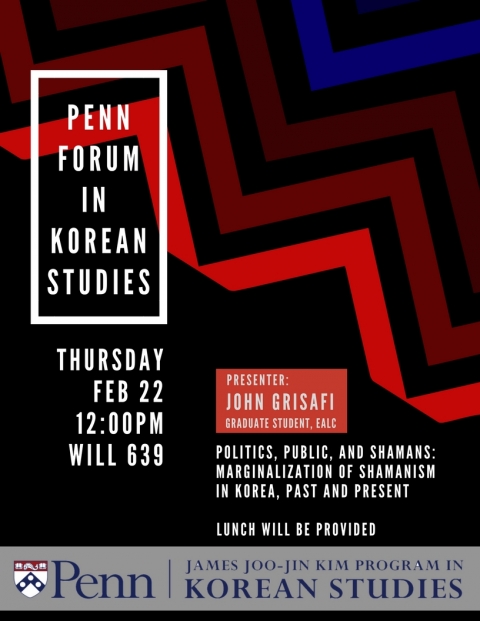
Williams Hall 639
Lunch will be provided!!!
Scholars, journalists, and other observers often regard Korean shamanism as the historic popular religion of the Korean people, still underlying and influencing Korean culture and society today. Though such observers typically regard Korean shamanism as historically significant and culturally pervasive, might it be accurate to consider it a marginal religion Korea? In 2016, scandals centered on South Korean President Park Geun-hye and her relationship with so-called “shaman adviser” Choi Soon-sil resulted in the media’s casual usage of the term “shamanism,” associating it with such concepts as “cult” and shamans having ominous and illicit influence over the government. I examine and discuss how Korean shamanism today is paradoxically both respected and marginalized, determining what historical, social, and cultural factors influenced the pejorative discourse targeting the religion as part of the popular discourse around the Park-Choi scandal. Through such examination and study, I use historiography and religious studies theory to develop a functionalist and constructivist model which explains how shamanism has been marginalized in Korea’s past and has been marginalized again in South Korea in 2016.
 James Joo-Jin Kim Center for Korean Studies
James Joo-Jin Kim Center for Korean Studies